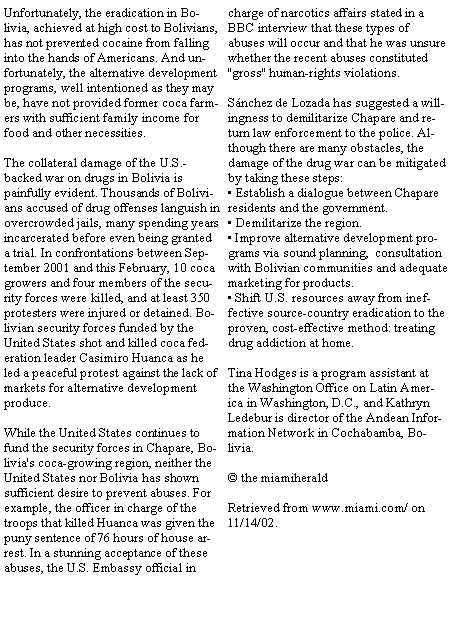|
By Tina Hodges and Kathryn Ledebur
Thursday,
November 14, 2002
Bolivian President Gonzalo Sánchez de
Lozada meets today with President Bush in Washington, D.C. The
perennial U.S. determination to fight drugs by ripping up coca
plants will certainly drive the meeting. As representatives of
NGOs who monitor drug policy in Bolivia, we hope that the
presidents face up to some uncomfortable facts.
U.S.
international drug-control policy is ineffective. Over the
last decade, despite spending more than $25 billion on
drug-control programs overseas, more illicit drugs are
available in the United States, and at cheaper prices, than
ever before. Plan Colombia was so profoundly unsuccessful that
coca cultivation in the Andean region increased 21 percent
during the plan's first year.
Yet U.S. officials seem
to hold out hope for the supply-side strategy of combating
drugs despite the admonitions of market economics and studies
commissioned by their very own agencies.
Searching for
a model of success, the U.S. officials cling to the Bolivian
experience. True enough, Bolivians eradicated 70 percent of
their coca over the last few years. Yet that coca was quickly
replaced by new crops in Colombia and Peru and replanted crops
in Bolivia, leading to an overall increase in
production.
|
|

